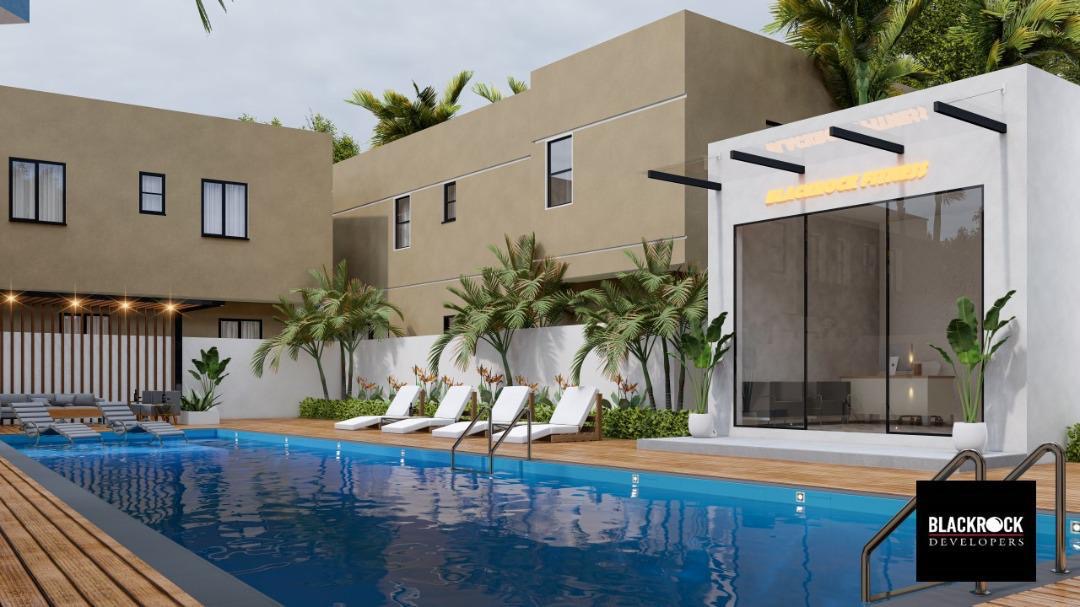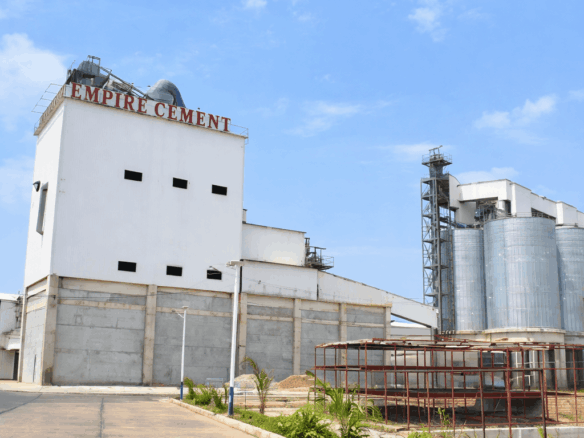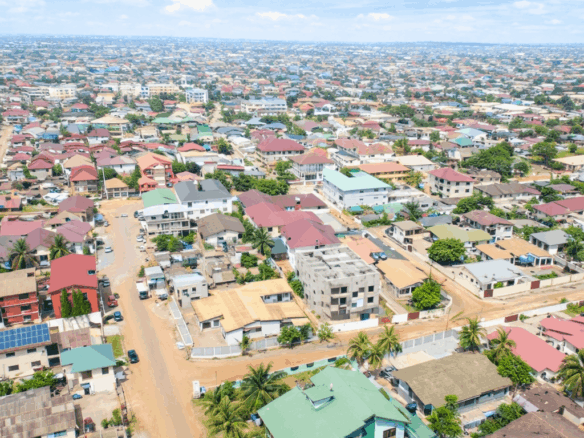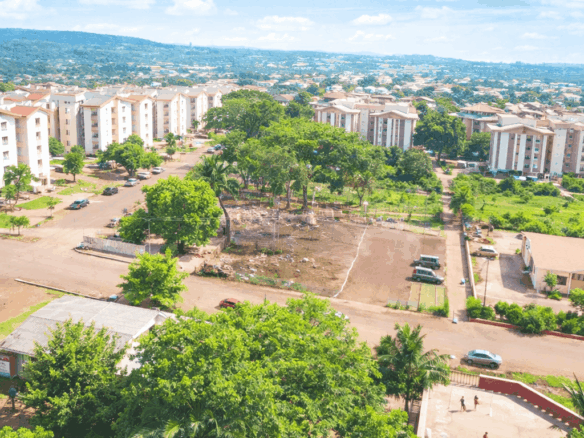Residential vs commercial real estate, Ghana investors face a golden opportunity in 2025, with property values surging 10-12% annually and yields reaching 15% in prime locations. Ghana’s real estate market, valued at $77.23 billion and projected to hit $94.80 billion by 2029, presents compelling cases for both residential and commercial investments. But which path delivers superior returns for your investment goals?
The answer isn’t straightforward. Property investment Ghana success depends on your capital, risk tolerance, and management preferences. With Ghana’s 1.8 million housing deficit and growing business sector, both markets offer distinct advantages worth exploring.
Ghana’s Market Climate Favours Strategic Investors
Real estate market 2025 Ghana benefits from unprecedented government support. The “My Home, My Peace” program offers five-year tax exemptions on rental income from new construction, while infrastructure developments like the Accra-Kumasi railway drive property values higher.
Accra investment property leads growth, with foreign investment jumping 18% in 2024. The capital’s rental market shows remarkable resilience, 37.5% of households rent compared to 22% nationally. Meanwhile, diaspora remittances of $4.6 billion in 2023 fuel sustained demand for quality properties.
Residential Investment: Steady Returns with Lower Barriers
Residential rental market Ghana offers attractive entry points for new investors. Rental yields Ghana for residential properties range from 6-13.5%, with premium Accra locations consistently delivering 8-10% annually. A typical $200,000 apartment can generate $1,750 monthly rent, yielding approximately 11% gross returns.
Buy to let Ghana strategies benefit from several unique advantages:
- Advance rent payments: Landlords typically collect 12-24 months upfront, improving cash flow
- High occupancy rates: Urban areas maintain strong demand, especially for mid-market housing
- Tax benefits: Only 8% withholding tax on rental income, plus capital gains exemptions after five years
- Lower management complexity: Simpler tenant relationships and maintenance requirements
Entry barriers remain manageable. While foreigners face 50-year leasehold restrictions, minimum capital requirements start at $200,000 for joint ventures with Ghanaian partners. Transaction costs total 8.25-16% of the property price, but the residential market’s stability justifies these expenses.
Popular residential areas include Airport Residential Area ($150,000-$500,000 for apartments), established East Legon, and emerging Kwabenya, offering affordable entry points with strong growth potential.
Commercial Property: Higher Yields, Higher Stakes
Commercial property in Ghana attracts investors seeking premium returns and long-term stability. Commercial lease Accra arrangements typically generate 8-15% annual returns, with prime business districts delivering 9-10% gross yields. Industrial properties can achieve 11-14% returns due to longer lease terms.
However, commercial investments demand substantially more capital. Prime office spaces command $35+ per square meter weekly, with purchase prices ranging from $650,000 to $2.6 million. The payoff comes through:
- Extended lease terms: 3-10 year agreements provide predictable income streams
- Triple net leases: Tenants handle taxes, insurance, and maintenance costs
- Professional tenants: Businesses typically maintain properties better than residential tenants
- Inflation protection: Commercial rents often include escalation clauses
Commercial rental yields vary by location. Cantonments offers 7-8% yields with diplomatic stability, while East Legon and Spintex Road provide 9-10% returns with strong growth potential.
The downside? Higher vacancy risks during economic downturns. COVID-19 demonstrated this vulnerability, with office rents declining 21.4% between 2020-2022, though markets have since recovered.
Making Your Investment Decision
Choose residential investment if you’re seeking lower entry barriers, consistent demand, and simplified management. The housing deficit guarantees sustained demand, while tax advantages support long-term wealth building. Residential suits investors wanting steady income with moderate capital requirements.
Select commercial investment for higher yields, longer lease terms, and inflation protection. Commercial properties appeal to investors with substantial capital seeking premium returns and willing to accept higher vacancy risks.
Consider a mixed portfolio approach combining both types. Residential provides stability and consistent income, while commercial delivers higher yields and diversification.
Financing Your Ghana Real Estate Investment
Investing in Ghana real estate requires understanding financing options. Local banks offer mortgages at 24-35% for cedi loans and 10.5-12% for USD loans. Government schemes provide subsidized 12-13.5% rates for eligible applicants.
Foreign investors can access loan-to-value ratios up to 80-85% for residential properties and 70-75% for commercial investments, though down payments typically require 20-25% of property value.
Key Takeaways for 2025
Ghana’s real estate market offers exceptional opportunities for both residential and commercial investors. Residential properties provide accessible entry points with steady 8-10% yields, while commercial investments deliver premium 10-15% returns for those with higher capital.
Success depends on matching investment type to your financial capacity, risk tolerance, and management preferences. With Ghana’s economic growth, political stability, and improving infrastructure, both paths can build substantial wealth in West Africa’s most promising property market.
Ready to explore these opportunities? Visit GhanaPropertyFinder.com for exclusive listings, detailed market analysis, and expert guidance to help you navigate Ghana’s dynamic real estate landscape and make informed investment decisions.






